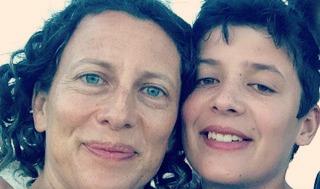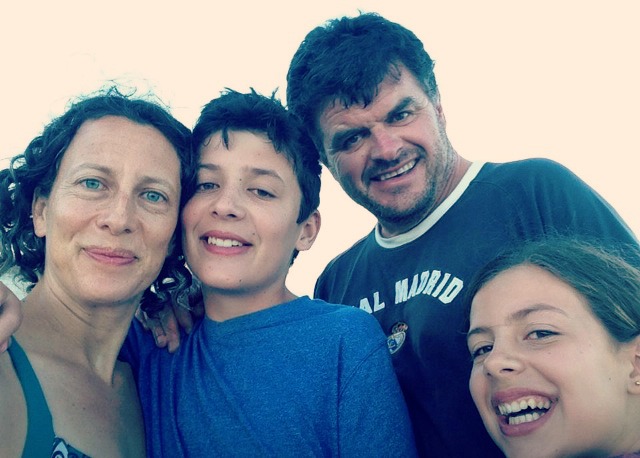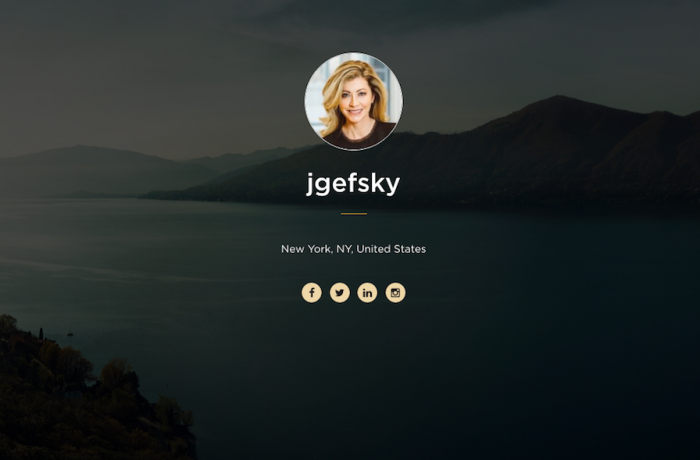By Danielle Cass
This is the story of how I hacked my life and career last year to get closer to the front lines of health-care innovation – and my family.
It is also the story of how you can reinvent your own path in order to fix what’s broken in your career or fix imbalance between your work and life.
My story starts at home: I grew up surrounded by health-care pioneers whose work saved and improved the lives of hundreds of people. My mom is a family physician who in the 1980s opened the nation’s first health center for women. My dad is a urologist who brought mobile lithotripsy to the U.S. in the 1980s. (That’s a non-invasive way to smash kidney stones without surgery.) My sister is a lead Gynecologist Oncologist at Cedars-Sinai Medical Center and UCLA focused on finding a marker for ovarian and cervical cancers so they can be detected and treated earlier.
One year ago I was Kaiser Permanente’s National Director of PR Strategic Planning and Partnerships. I was in Washington DC twice a month organizing big news events and meetings at KP’s gorgeous new Center for Total Health on Capitol Hill with The White House, the U.S. Department of Health & Human Services Secretary Sebelius’ team and the innovation team at the Center for Medicaid & Medicare Services.
I was doing really exciting stuff and raising the visibility of Kaiser Permanente’s integrated care model and award-winning innovation and research — BUT I was missing out on key moments in my family’s life.
I missed my son’s stand-up saxophone solo at The Berkeley Jazz School because I was in DC for an Institute for Healthcare Improvement event I organized at our Center for Total Health. I missed my daughter’s school play and most of her soccer games because I was in DC.
Then I had an epiphany after attending two amazing health care innovation events.
At The XX Retreat (XX in Health is a non-profit focused on the intersection of health and technology), I was moved to tears by speaker Nupur Srivastava as she described her work to treat jaundice in newborns in India. She told the audience how the technology was available to mothers whose babies were dying of jaundice but how one mother said it was cheaper to have another child rather than seek treatment.
Then, at the Kaiser Permanente Innovation Retreat, I listened rapt as teams of KP doctors, nurses, IT experts and designers described their innovation projects that were being awarded for netting big impact in clinical care.
As I sat in the audience, I decided that while it was important work, for me personally at that point in my life, it didn’t matter whether I landed more stories about Kaiser Permanente in the New York Times and POLITICO and generated two million impressions on Twitter.
I wanted to help clinicians improve the lives of their patients. AND I wanted to do it while working just 45 hours a week right here in the Bay Area.
That night in my hotel room I sketched out my dream job at Kaiser Permanente. I would be an Innovation Evangelist helping our care providers share and spread their innovative projects throughout the Kaiser Permanente universe of 17,000 doctors, 49,000 nurses, 175,000 employees and 9 million members.
The next morning while still at the KP Innovation Retreat, I pitched the job idea to the Vice President of Innovation & Advanced Technology, she said yes immediately, and I was hired the next month.
Ironically, I was scared to tell my parents about it. They are immigrants to this country and always pushed my three sisters and me to work hard, achieve more and climb up the ladder, rather than taking our foot off the gas pedal to explore a side path.
But to my surprise, they were thrilled for me and very proud and supportive.
In the last year on the new job, I now telecommute. I’ve chaperoned my kids’ school field trips and camping trips, attended their music performances and sports games, and gone on more dates with my husband because I didn’t feel guilty about leaving the kids due to constant work travel. And my husband finally let me get a dog because I wasn’t traveling for work and could help take care of it.
Most importantly: I’ve already made some impact in helping clinicians spread their innovations – like implementing a roving mobile telemedicine robot that Intensive Care Unit doctors use to beam in from home for evening rounds in the ICU. This innovation has led to fewer night emergencies and increased patient and patient family satisfaction.
So how can you “hack” your own job for more flexibility? My advice:
Take advantage of resources already around you. Look for existing groups in your organization that support women advancing their careers. For example, Kaiser Permanente has two internal business resource groups focused on fostering women to lead in health care: Kaiser Permanente Women in Technology and Kaiser Permanente Women Embracing Life and Leadership.
Find a mentor. Luckily at Kaiser Permanente we have KPMentoring.org that pairs our employees with fellow mentors and mentoring programs. But you can discover your own mentor by getting involved with groups like XX in Health (xxinhealth.org), the Lean In Foundation (leanin.org), or just reach out to a woman leader whom you admire and ask her for a quick coffee by her office or a 15-minute phone chat.
After you’ve completed Step 1 & 2, sketch out your dream job, then brainstorm with your friends, colleagues and mentor on who to pitch and where to network to make it real.
If you get rejected, wait a few months and try again. If the landscape isn’t ripe today for your dream job, it might be six months from now.
A version of this post appeared originally on XXinhealth.org
——————————






